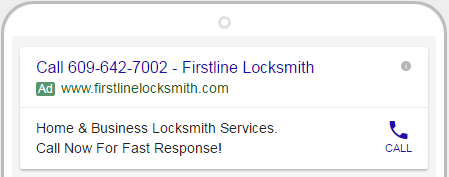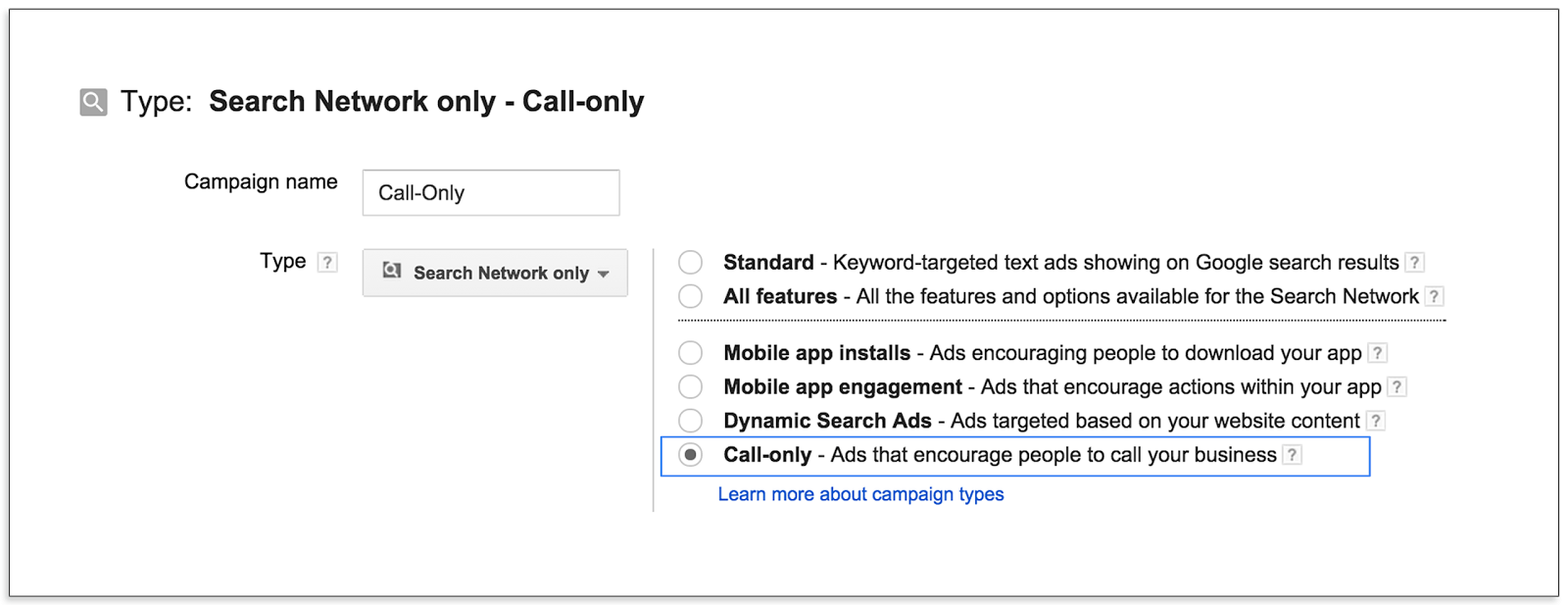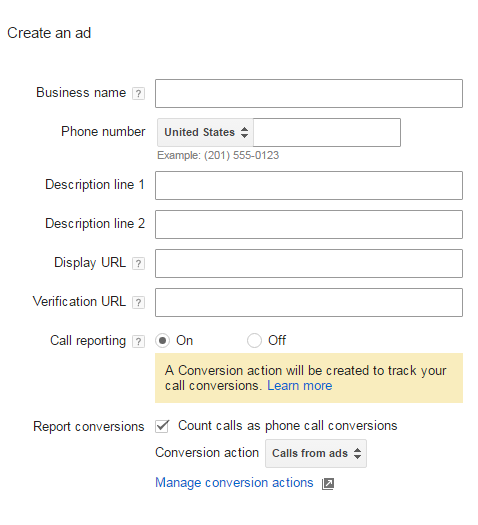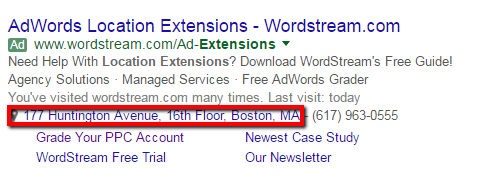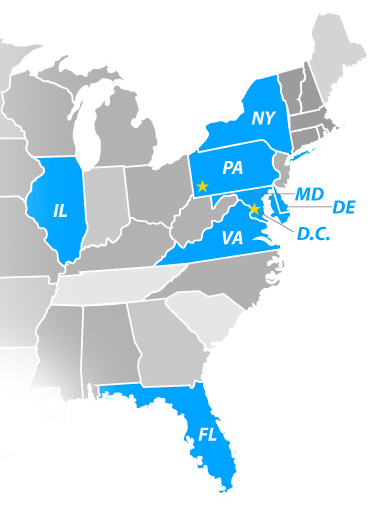
For small, regionally focused businesses to run effective PPC accounts, a local search marketing strategy is key. While it might seem counterintuitive to limit reach with geographic parameters and keyword modifiers, in truth you’re mitigating the power of national competitors with comparatively limitless resources. Don’t allow size to act as an impediment to advertising success: turn it into your biggest advantage.
Now, don’t get me wrong: the local SERP – that is, the search results pages shown for queries modified with specific locations – can be insanely competitive. But a lot of the time, this competition comes from those same national competitors who are blindly spending on broad, unfocused keywords and using bland ads. They’re leaning on brand recognition, not value proposition: an exploitable tactical error.
For example:
You’re a sartorial artisan forging custom sportcoats in Cambridge and you decide that Google Ads would be the perfect way to earn new business. Maybe you check out a blog post or two before diving in.
You notice that when you bid on terms like “custom menswear” and “tailored jacket,” your ads are consistently buried beneath those of Men’s Wearhouse and Jos. A Bank. You also notice these juggernauts seem to be using the exact same ad copy for both terms, and on mobile, too.
You’re quite astute, so you begin appending “Cambridge” “Boston” “Newbury Street” and the like to the tailoring terms you’d been bidding on. You deploy those same keywords in your compelling, locally-focused ad copy. And you use call-only ads to schedule custom fittings at your shop.
Yes, the volume is much lower, but the clicks you’re paying for are hyper-relevant and cheaper.
Quality Scores improve. Conversion rates improve. Revenue improves.
The gist? If you’re not operating nationally, doubling down on local is the key to thwarting your competition.
This is exactly what Firstline Locksmith, a (you guessed it) locksmith servicing the mid-Atlantic region, did. And the strategy continues to pay off.
Wordstream’s marketing services team was able to scale Firstline’s PPC campaigns quickly and effectively. “They came onboard in December of 2015, with a goal of 50 calls a month from paid search at a $50 CPA. Since then, Firstline has seen 100+ calls each month at a $23 CPA,” says account manager Ashley Noel.
The significant jump in performance didn’t just excite the client: it was good enough to garner some hardware at the US Search Awards for Best Local Campaign. To celebrate this award-winning work, here are some of the techniques Ashley used to help Firstline Locksmith dominate the local SERP (along with how to implement the same techniques in your account).
Tip #1: Dominate Local Business Marketing with Call-Only Ads & Calls from Your Website
What WordStream Did…
The market for residential locksmith services is massive. It’s also hyper-local and uniquely almost entirely mobile. Consequently, our strategy for these campaigns focused exclusively on the mobile searcher. We started with call-only campaigns then, after our initial success, we continued to build out local search campaigns in ad groups focused on specific residential neighborhoods and suburbs.
These campaigns – complete with bid adjustments and mobile preferred ads – cater to the mobile market aggressively. When traditional mobile conversion rates proved to be low, we pivoted. Our goal shifted from driving quote completions to garnering more phone calls from landing pages. These calls were then tracked using WordStream’s keyword level call tracking software, which allowed us to optimize bids and ad copy for these leads.
How You Can, Too…
If your business operates within a vertical in which prospects are met with immediate needs like, say, being locked out in a flannel nightgown at 4am or having broken front teeth or finding his or herself in dire need of a dinner jacket, call-only ads could be right for you.
To create your own call-only campaigns, head to the “Campaign” tab and click the big red button…
Then, after naming your new campaign and selecting your desired network (Search), use the final radio button on the right to select “call-only.”
Structurally, call-only ads differ from standard and Expanded Text Ads because the headline is your phone number. This limits the amount of text you have to work with to the confines of the description lines.
Side note: I’m interested to see if/how call-only ads change once Expanded Text Ads become the status-quo. Structurally, I’m not sure how two headlines would work: maybe a phone number paired with a bolded CTA? Plus, the mobile-exclusive nature would guarantee truncation of any long, elaborate description lines.
It’s important to remember that call-only ads are only going to show in the first two positions. To bring cost per click (which, in this case, is really cost per phone call) down, be sure to maximize Quality Score by utilizing the keywords you’re bidding on in the abridged space for ad copy.
***
If, like Firstline, you’re trying to drive phone calls from a carefully manicured landing page instead of the SERP, you’ll need to set up call tracking software. It’s worth mentioning here that a developer (or, if you’re a WordStream client, our Implementation Team) could be extremely helpful in getting your call tracking to work.
To set up call tracking:
- Establish a pool of phone numbers to be used. The quantity of numbers needed depends on your site’s overall traffic levels.
- Replace the HTML phone number on your website with a snippet of JavaScript code.
- When a PPC visitor clicks your ad, the JavaScript code dynamically inserts one of the phone numbers from your pool of numbers where the old HTML phone number used to be on your website. That number stays with the visitor throughout her visit on your site, no matter what page she navigates to, and continues to stay with her for a predetermined time in case she returns to the site.
- The JavaScript code that was installed on the site captures the keyword that triggered your ad so you can tie the phone call back to the keyword.
- After a while the number gets recycled so you don’t have to keep adding new numbers to your pool
Learn more about mobile PPC strategy.
Tip #2: A Little (Local) Optimization Goes A Long Way
What WordStream Did…
Historically, Firstline had struggled to differentiate itself on the SERP alongside a number of “fake, spammy locksmith advertisers.”
To distinguish itself from competitors leveraging black hat tactics, we created a Google listing for Firstline (known as a Business Profile), which his helped with organic rankings and allowed for the use of location extensions in paid ads. We also curated real reviews from past customers and the Better Business Bureau to highlight the legitimacy of their listings with invaluable review extensions.
How You Can, Too…
To create a robust listing like the one above, you must first create a Business Profile on Google, but also create a Google My Business account so that you can claim and optimize that Business Profile. A few of the many Google My Business optimizations you can perform include:
- Adding your phone number, website, and hours (including special hours)
- Selecting primary and secondary categories
- Uploading photos regularly
- Frequently publishing posts
Google My Business is completely free, allows you to consume more real estate on the SERP for branded terms, and exists as a resource for future customers. Dominate local business marketing by creating an account already!
You can also run Google Local Services Ads through a GMB listing.
***
To add location extensions to your Google Ads (a great way to reiterate the fact that your business is just around the corner), navigate to the “Ad Extensions” tab in the Google Ads UI and select “Location Extensions.” if you’ve never added a location before, you’ll be prompted to sync your Google My Business account. Once completed and enabled, your ads will start looking something like this:
Learn More about local online marketing.
📍 Are your listings optimized for local search?
Find out with our Free Business Listings Grader!
Tip #3: Geo Ad Customizers, Hyper-Specific Copy Without the Legwork
What WordStream Did…
Our keyword strategy included building ad groups centered around different services for residential, auto, and business services as well as different cities, neighborhoods, destinations, and routes.
This allowed us to cater our ads and landing pages to speak to the local searcher’s specific needs.
Unfortunately, though, updating local ads frequently became a prohibitively laborious task. To speed things up while still maintaining that oh-so-important locality, we began using geo ad customizers to better speak to a user’s local search query and allow us to better manage our messaging.
Once we included location-specific language in our ad’s headlines, Firstline saw improvements to their CTR and Quality Score.
How You Can, Too…
To create geo ad customizers in Google Ads, you need to build a feed and upload it into the Business data section of the Shared Library tab.
Feed construction can be a pain, but as long as you include the fields you’re trying to modify, you shouldn’t have an issue. Here’s a template you can use to get started with customizer feed construction, and here’s a list of all of the possible targeting attributes you can include in your feed!
Once your feed has been uploaded, navigate to a campaign in which you wish to implement geo-specific ad copy and create a new text ad:
The next step is similar to (read: the exact same as) using Dynamic Keyword insertion. Simply insert a bracket, like so ‘{‘, and a list of feeds will appear. Select the feed you’d like to reference and then choose the attribute for the values you will want to show in the ad (I’ll stop saying “feed” now, I promise).
While the text that’s displayed in the UI will look like a convoluted mess…
Your prospects will be served an ad that speaks to both their needs and their location.
Remember: Character limits will apply when creating the ads, so keep the attribute values and ad text within the Expanded Text Ad limits.
Learn More about Geo Customizers!
***
Leveraging the techniques highlighted above, Firstline Locksmith’s account manager Ashley Noel has incited a 30% increase in conversion rates and, perhaps more important, a vast improvement in call quality. Head here to learn about SEO tips specific to COVID-19. Or click to learn more about WordStream’s marketing services.


